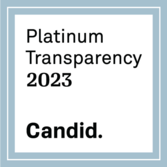Clean Ocean Advocate, May 2006
Jennifer Samson, Ph.D., 732-872-0111 or science@cleanoceanaction.org
South Brother Island Channel Dredging with HARS Disposal
Clean Ocean Action (COA) continues to monitor ocean disposal of sediments at the Historic Area Remediation Site (HARS). The US Army Corps of Engineers (ACOE) is currently proposing maintenance dredging of the South Brother Island Federal Navigation Channel in the East River, with subsequent placement of approximately 265,000 cubic yards (CY) of dredged material at HARS. The sediments are contaminated with PAHs and PCBs at levels four times higher (for PAHs) or equal to (for PCBs) concentrations in the contaminated sediments already at HARS. Tests using Buttermilk Channel sediments caused clams and worms to accumulate 34 different contaminants. In comments submitted to ACOE, COA strongly objected to the use of South Brother sediments as cap material for HARS. Visit our website for COA’s comments.
Current Dredging Proposals
The public comment period is currently open for two federal navigational maintenance dredging projects in New Jersey waterways.
The first project is located in Sandy Hook Bay at Leonardo, where ACOE is planning to dredge the channel to a depth of 8 feet (plus 2 feet overdepth). The resulting dredged material, approximately 40,000 cubic yards (CY), would be placed in a yet to be determined state-furnished upland placement site. The release of the Public Notice is premature because the start date, funding, and placement site are not provided, and a call to ACOE’s project manager confirmed that these critical issues are unresolved. Without this critical information it is not clear what the public is supposed to be commenting on, but regardless, the comment period ends on May 17. COA will urge ACOE to withdraw the public notice until the important specific information is determined.
The second project is located in the Arthur Kill at the New York Container Terminal on the Howland Hook Marine Terminal, where the Port Authority of New York and New Jersey is planning to dredge the berths to a depth of up to 41 feet deep (plus 2 feet overdepth). All the dredged material will be beneficially reused depending on the type of material. The silt/mud portion of the dredged material, approximately 9,000 CY will be processed and used as cap material at the Fresh Kills landfill and the remaining 35,000 CY of rock will be used as artificial reef material at the New Jersey State Shark River Artificial Reef Site. COA supports the beneficial reuse of dredged material and commends ACOE for continuing to provide the New Jersey Artificial Reef program with superior material to enhance the reef system. The comment period for this public notice ends on May 31.

